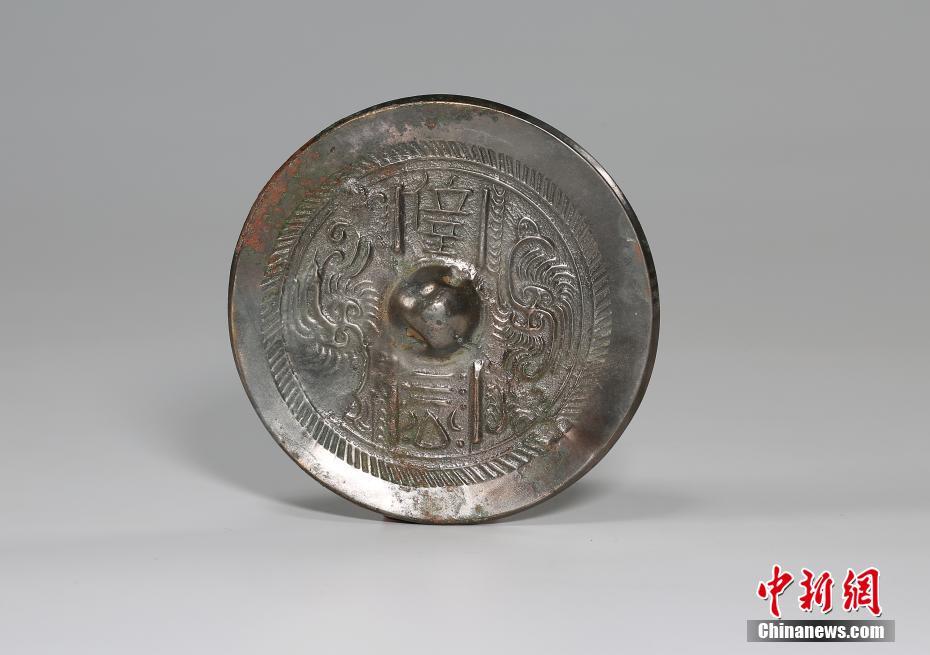Editor's note: This is Motherthe 34th entry in the writer's project to read one book about each of the U.S. Presidents in the year prior to Election Day 2016. Follow Marcus' progress at the@44in52Twitter account and the44 in 52 Spreadsheet.I don't think there's ever been a more appropriate slogan for a president than "we like Ike."
General Dwight D. Eisenhower was, after all, a bonafide hero to millions in the Greatest Generation. He made the fateful decision to go forward with the D-Day landings when success was by no means assured, then he led the Allied forces to victory in Europe during World War II.
(He's also the last leader to have been both a general and president, joining 11 other presidents who held that position — such as George Washington, Andrew Jackson and Ulysses S. Grant.)
And yet much of Eisenhower's presidency was about protecting himself — and that eminently likable reputation — from the dark side of his presidency. Vice President Richard Nixon, who did much of Ike's dirty work behind the scenes, was often left to twist in the wind.
This is the main thread running through Stephen Ambrose's Soldier and President,a single-volume version of his two-volume Eisenhower biography set. Ambrose condensed and updated the single-volume version (much like another author's set of books President Jackson).
Even in a single volume, Ambrose is thorough, giving Eisenhower's distinguished military career as much space as his tenure in the White House, walking the reader through all notable successes and failures. The political side seemed a bit murkier — but that may just be a function of politics, where victory and loss is often far less clear than it is on the battlefield.
Speaking of losses, this book was also about coming to terms with the fact that I'm a pokey reader — sometimes tearing through 40-50 pages in a sitting, sometimes struggling to get through 10 pages, regardless of subject matter. I ended it a whopping 21 days behind schedule.
This Tweet is currently unavailable. It might be loading or has been removed.
At least we're finally, fully, in the recognizable half of the 20th century. Nothing here drags me down like some of the drier aspects of, say, Martin Van Buren. It's fascinating to find out how much Eisenhower shaped the world we live in. (Thanks, Ike, for that Interstate Highway System!)
Besides getting a solid overview of deepening of the Cold War, the book was fantastic in how it shed light on Eisenhower's primary domestic foil: U.S. Senator Joe McCarthy, he of the Communist witch hunt and sweaty alcoholism.
Eisenhower's reluctance to act on McCarthy — there was no attempt to curb his actions or speak out against him — allowed McCarthy's venom to seep into the national discourse.
This Tweet is currently unavailable. It might be loading or has been removed.
Most of us know that Eisenhower was president when the Korean War finally came to an end. But fewer of us would associate him with key decisions that would reverberate throughout the 1960s: He sent the first American soldiers to Vietnam, he sent the U2 spy plane that crashed in the Soviet Union, escalating tensions for years, and he also sent federal troops into the first tense clashes of the civil rights era.
Eisenhower was also the president who helped created NASA, a direct result of the success of Russia's space program (i.e. Sputnik). And in general he oversaw a mostly economically prosperous period of relative peace.
 Original image has been replaced. Credit: Mashable
Original image has been replaced. Credit: Mashable He was clearly beloved. He rode a bipartisan line, for the most part. But my feeling, leaving Eisenhower and moving on to Kennedy, was a man who was starting to feel out of time himself — that he had trouble coming to grips with a world that kept moving quickly on.
Maybe the clearest metaphor for the changing times and Eisenhower's place in it was his being the first president to give an address on color TV in 1958. He seemed befuddled by the technology:
"I do not know whether the rest of you in this audience have been able to make that same tour, but it is like nothing else so much in my mind as the radar room in a big battleship or some other complex thing that really is entirely beyond my comprehension, but is still capable of exciting my wonderment."
Still, this man out of time was there at the right time, well-liked and leading a nation through its last decade before a tremendously turbulent transition.
Days to read Washington: 16Days to read Adams: 11Days to read Jefferson: 10Days to read Madison: 13Days to read Monroe: 6Days to read J. Q. Adams: 10Days to read Jackson: 11Days to read Van Buren: 9Days to read Harrison: 6Days to read Tyler: 3Days to read Polk: 8Days to read Taylor: 8Days to read Fillmore: 14Days to read Pierce: 1Days to read Buchanan: 1Days to read Lincoln: 12Days to read Johnson: 8Days to read Grant: 27Days to read Hayes: 1Days to read Garfield: 3Days to read Arthur: 17Days to hear Cleveland: 3Days to read Harrison: 4Days to read McKinley: 5Days to read T. Roosevelt: 15Days to read Taft: 13 Days to read Wilson: 10 Days to read Harding: 3Days to read Coolidge: 7Days to read Hoover: 9Days to read FDR: 11 Days to read Truman: 14Days to read Eisenhower: 11
Days behind schedule: 21
(Editor: {typename type="name"/})
 Shop Owala's Memorial Day Sale for 30% off tumblers
Shop Owala's Memorial Day Sale for 30% off tumblers
 Ripples in space and time carry the future of space science
Ripples in space and time carry the future of space science
 Even police are making jokes about that monster f*ck up at the Oscars
Even police are making jokes about that monster f*ck up at the Oscars
 Fujifilm under fire for sexist camera demo featuring topless female model
Fujifilm under fire for sexist camera demo featuring topless female model
 'The Last of Us' Season 2, episode 4: Why Ellie sings 'Take on Me'
'The Last of Us' Season 2, episode 4: Why Ellie sings 'Take on Me'
The cicadas aren't invading the U.S.
 UPDATE: April 27, 2021: In the spring of 2021,Brood X of the cicadas will gloriously emerge from the
...[Details]
UPDATE: April 27, 2021: In the spring of 2021,Brood X of the cicadas will gloriously emerge from the
...[Details]
Surprise! 'Fantastic Beasts' and 'Suicide Squad' are both Oscar winners now
 Talk about an upset. Science fiction and fantasy movies haven't always fared well at the Academy Awa
...[Details]
Talk about an upset. Science fiction and fantasy movies haven't always fared well at the Academy Awa
...[Details]
Here's how Ryan Gosling reacted to that wild Best Picture twist
 Just when the cast and crew of La La Landthought they'd won Best Picture at 2017 Oscars, the Academy
...[Details]
Just when the cast and crew of La La Landthought they'd won Best Picture at 2017 Oscars, the Academy
...[Details]
Iranian film 'The Salesman' wins Oscar in biggest political statement of the night
 Director Asghar Farhadi's absence at the Oscars on Sunday spoke almost as loudly as the award itself
...[Details]
Director Asghar Farhadi's absence at the Oscars on Sunday spoke almost as loudly as the award itself
...[Details]
Best keyboard deals: Save on Asus gaming keyboards at Amazon
 The best Asus gaming keyboard deals Best Asus Keyboard Deal
...[Details]
The best Asus gaming keyboard deals Best Asus Keyboard Deal
...[Details]
University student takes on political outfit with viral online campaign, gets rape threats
 A 20-year-old student from Delhi University (DU) has been receiving rape threats on social media, ac
...[Details]
A 20-year-old student from Delhi University (DU) has been receiving rape threats on social media, ac
...[Details]
New Windows 10 update warns users against installing certain apps
 Windows users, take note: a potentially annoying update is headed your way. Microsoft is currently t
...[Details]
Windows users, take note: a potentially annoying update is headed your way. Microsoft is currently t
...[Details]
The Oscars made a big mistake during the In Memoriam
 A lot of famous people died in 2016 -- producer Jan Chapman wasn't one of them.The Oscars on Sunday
...[Details]
A lot of famous people died in 2016 -- producer Jan Chapman wasn't one of them.The Oscars on Sunday
...[Details]
How to Easily Make iPhone Ringtones Using Only iTunes
Jimmy Kimmel wasted no time in making a few Trump jokes at the Oscars
 Oscars host Jimmy Kimmel didn't take too may jabs at President Donald Trump during the opening monol
...[Details]
Oscars host Jimmy Kimmel didn't take too may jabs at President Donald Trump during the opening monol
...[Details]
接受PR>=1、BR>=1,流量相当,内容相关类链接。